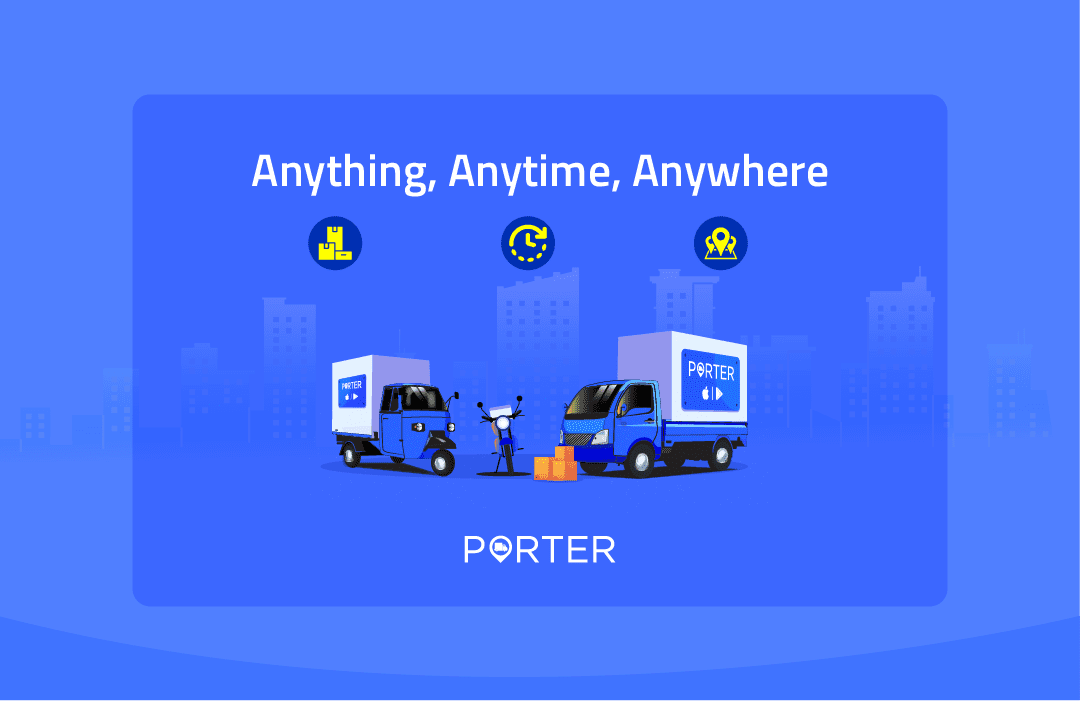
The Indian retail industry is evolving rapidly, with e-commerce and brick-and-mortar stores expanding their operations. As businesses strive to meet the changing needs of customers, omnichannel fulfillment has emerged as a popular strategy. By seamlessly integrating various sales channels, such as online and in-store purchases, businesses can optimize their supply chain and enhance the customer experience. One can use different strategies for successful omnichannel fulfillment, and the future of logistics in India looks bright.
Looking for Logistics company in Bangalore? Onboard Porter Logistics for all your delivery needs.
What is omnichannel fulfillment?
The coordinated and integrated process of filling orders from various sales channels, such as brick-and-mortar stores, online marketplaces, and other sales channels is referred to as “omnichannel fulfillment”. It involves the picking, packing, and shipping of products while ensuring that inventory is accurately allocated and tracked across various locations to prevent overselling or overstocking.
This process requires the use of advanced technology that enables real-time inventory and order synchronization, allowing for a single source of truth across multiple channels. Omnichannel fulfillment can occur in various locations, including warehouses, fulfillment centers, and physical stores, and is designed to streamline the order fulfillment process and provide a seamless shopping experience for customers.
Advantages of the omnichannel approach
Adopting an omnichannel approach in your business can bring numerous advantages that can contribute to its success. Here are some benefits of implementing an omnichannel strategy:
Higher order efficiency and accuracy
With an omnichannel approach, businesses can streamline their order fulfillment processes across various sales channels, making it easier to ensure order accuracy and reduce the risk of errors. This leads to improved efficiency and a seamless shipping system that can enhance customer satisfaction.
Happier customers
Modern customers expect fast and convenient service. Omnichannel fulfillment enables customers to receive their products faster and choose the delivery option that suits them best, such as in-store pickup or home delivery. This flexibility can increase customer loyalty and attract new customers, leading to higher sales and revenue.
More accurate reporting
When businesses use a logistics provider to oversee their omnichannel strategy, they gain access to real-time reporting that can help identify their most profitable sales channels and highlight areas that need improvement. This can help businesses optimize their operations and increase their profitability.
Stronger brand image
An omnichannel approach ensures that customers can access a business’s products across multiple channels, such as in-store pickup, home delivery, or online shopping. When these channels are consistent, it can help build a reliable brand image that customers can trust and rely on, leading to increased brand loyalty and higher sales.
Looking for Logistics company in delhi? Onboard Porter Logistics for all your delivery needs.
Strategies for successful omnichannel fulfillment
Here are some strategies and methods that can help you achieve successful omnichannel fulfillment:
Utilize a logistics provider for outsourcing
Logistics providers, such as any good logistics company in Bangalore, offer a full suite of services to manage every aspect of your fulfillment needs. They provide direct integrations with all leading e-commerce platforms and marketplaces, enabling you to expand into new sales channels easily while managing inventory and orders from a single dashboard. Providers like Porter even offer fast, affordable shipping options to boost customer satisfaction.
Employ varied strategies and services for different channels
If you’re using different channels, you may need to use different fulfillment strategies for each. Some orders are fulfilled by the brand itself, while others are fulfilled via strategic partnerships with other businesses.
Acquire appropriate technology
For a more unified fulfillment strategy, you can set rules and combine channels using both an order management system (OMS) and an ERP system. Check out the technology that a retail fulfillment provider offers if you work with them. Look for providers that offer omnichannel fulfillment, including integrations with various tools like order and inventory management systems, returns management software, and Developer APIs to allow for custom builds.
The future of logistics in India
India’s logistics market is one of the largest in the world, and it is projected to continue growing sustainably for the next five years. Compared to developed countries, India’s logistics spending is significantly higher as a percentage of GDP, largely due to indirect spending. Growing demand from the manufacturing, retail, automotive, and pharmaceutical industries is what propels the sector.
The rise in online shoppers has been massive, and this trend is anticipated to continue, with the Indian e-commerce market anticipated to expand at a CAGR of 31.4% between the years 2023 and 2028. The growth of e-commerce has further fueled the need for on-demand delivery services, such as same-day delivery, return management, and cash on delivery.
Conclusion
Omnichannel fulfillment has become the new norm in the retail industry, and the logistics sector in India is no exception. As the Indian logistics market continues to grow and evolve, businesses need to stay ahead of the curve by adopting the right technology and outsourcing logistics to trusted providers.
If you’re looking for a trusted logistics company in Delhi or any other city for your business, look no further than Porter. With an extensive fleet base of over 200,000 vehicles and operations in 15 cities, Porter can provide tailored logistics solutions for your business needs.
Click this link to learn more about how Porter for Enterprises can help streamline your logistics operations and drive growth for your business.

